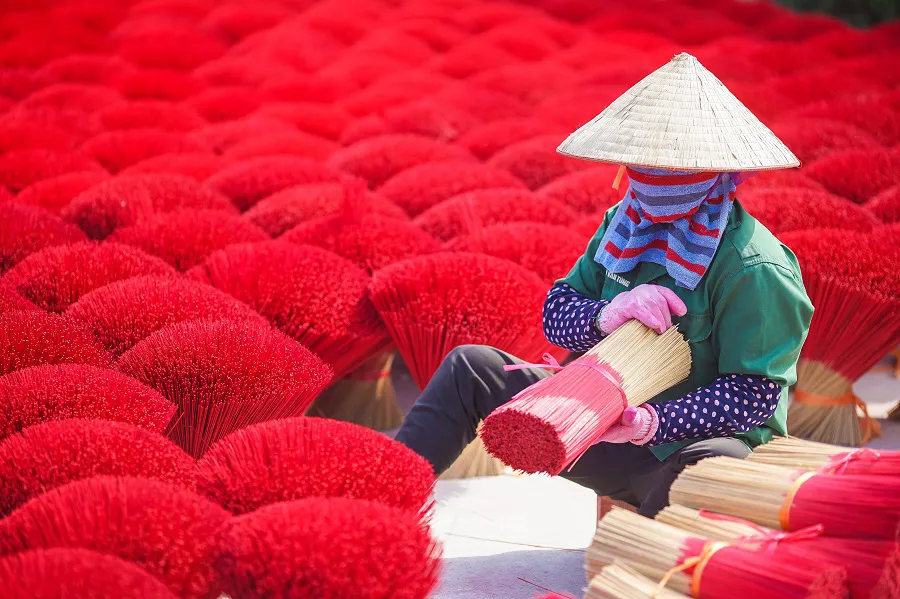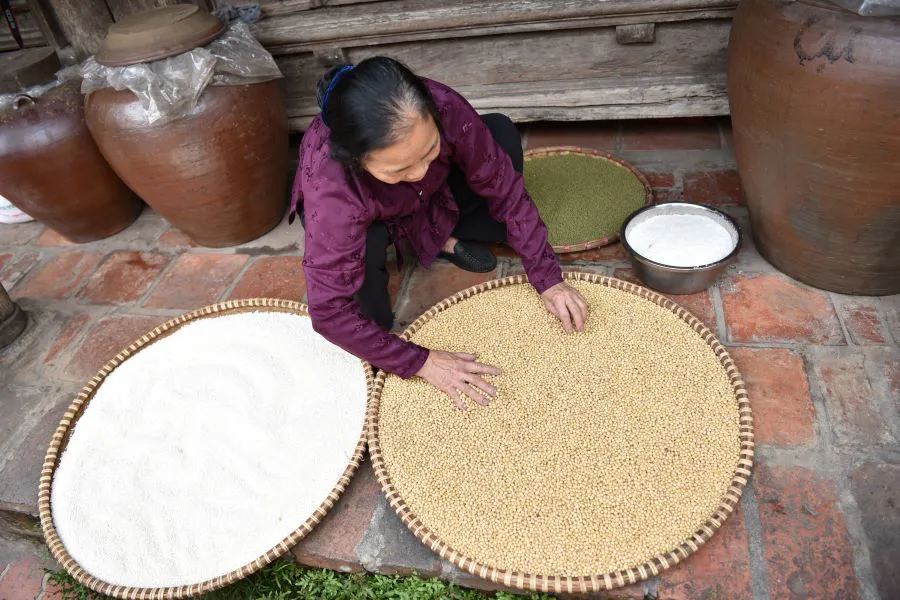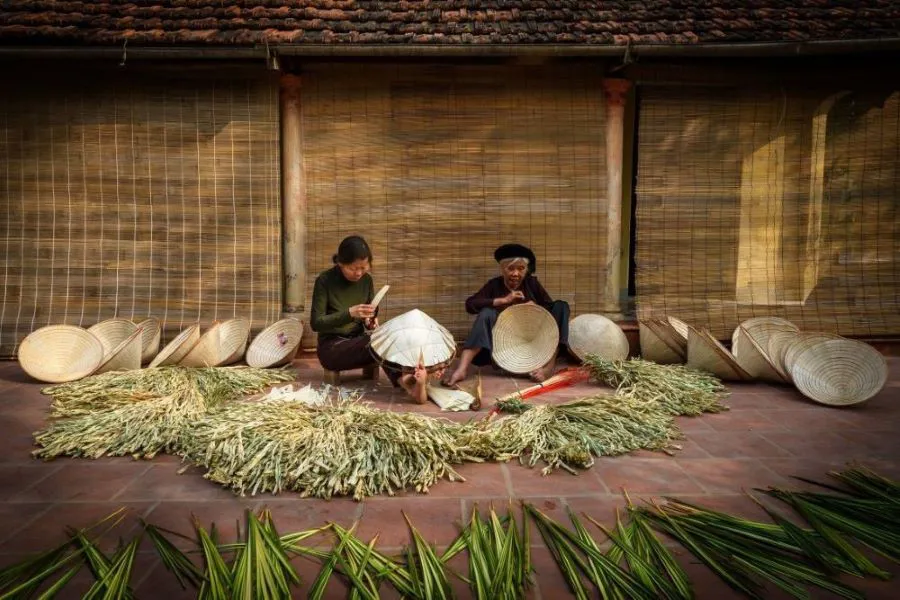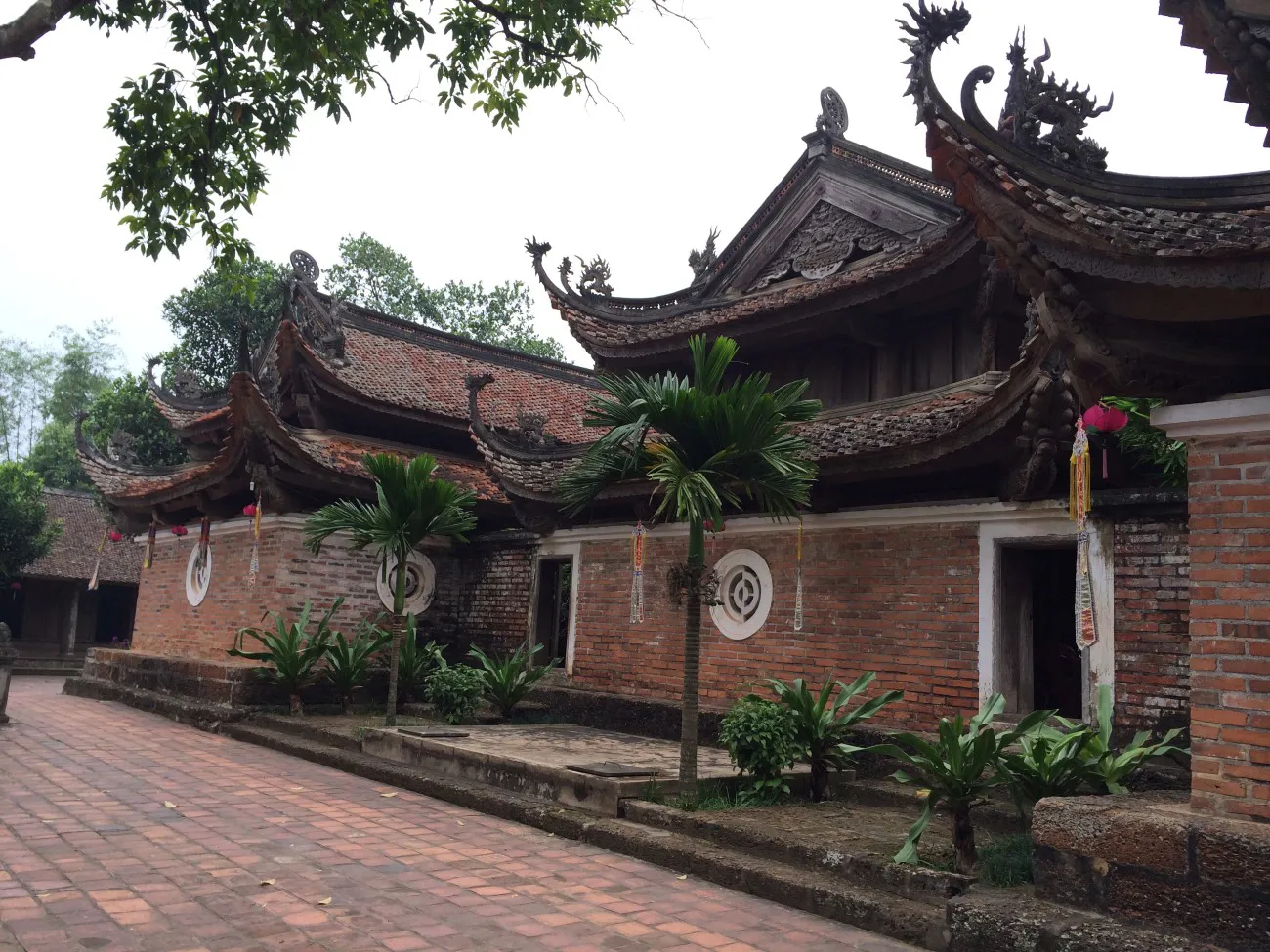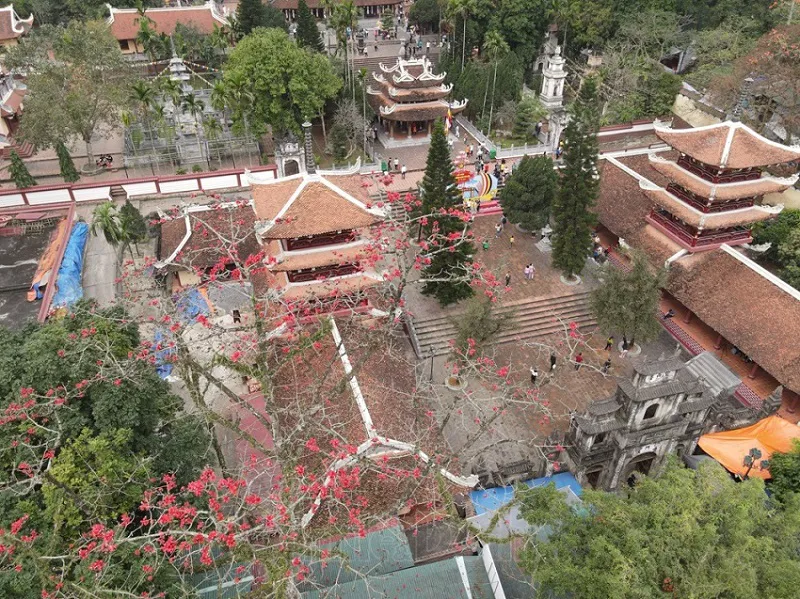Hanoi unlocks suburban tourism potential
Properly harnessing the potential of rural areas can help Hanoi increase its competitive advantage in tourism.
Rich in unique landscapes, artisan villages, and valuable relics, the vast suburban areas of Hanoi have great advantages in designing appealing tours to attract visitors and contribute to the transformation of the local socio-economic structure.
| Quang Phu Cau Incense Village on the outskirts of Hanoi promises to captivate visitors with its unique scenery and vibrant ambiance. Photo: Huy Pham/The Hanoi Times |
Huge untapped potential
Hanoi's suburbs include 17 districts and one town, each with its advantages and potential for tourism development. Hoang Viet Cuong, head of Gia Lam's Culture and Information Unit, said the district is rich in history and cultural traditions, with 320 relics, of which Phu Dong Temple is in the national category. The locality also preserves various traditional festivals, such as the Giong Festival or the Chu Dong Tu Festival.
Other districts in Hanoi also have their strengths for creating attractive tourism offers, such as Son Tay Ancient Citadel, Va Temple, and Duong Lam Ancient Village (Son Tay Town); Nguyen Trai Shrine (Thuong Tin District); or Cu Da Ancient Village and Uoc Le Ancient Village (Thanh Oai District). In particular, the Huong Pagoda Complex in My Duc District attracts millions of visitors every year.
It is noteworthy that many of the valuable relics in the periphery are located on the main transportation axis of the city. For example, Thang Long Avenue provides access to Thay Pagoda (Quoc Oai District) and Tay Phuong Pagoda (Thach That District) - both special national relics, while National Road 32 leads to Dai Phung Communal House (Dan Phuong District), Hat Mon Temple (Phuc Tho District) and relics in Son Tay Town.
| Soy sauce making at Duong Lam ancient village, Son Tay town, Hanoi. Photo: Huy Pham/ The Hanoi Times |
Although the suburban districts are considered the "gold mine" of Hanoi tourism, their inherent potential has not been fully tapped, which explains the comparatively low number of visitors. Tran Duc Hai, Secretary of the Dan Phuong District Party Committee, admitted that the absence of typical products and connections between downtown and suburban areas are still major obstacles to the growth of Dan Phuong's tourism industry.
Do Manh Hung, Chairman of the Ba Vi District People's Committee, echoed the same sentiment, saying that Ba Vi's tourism potential is huge, but the lack of links with travel agencies, coupled with difficulties in investing in transport infrastructure, means that the district's stunning destinations are still "distant" even to locals.
"Most of them haven't identified their target customers, so their product planning and development strategies are unclear. In addition, the number of tourist services they offer is still below the actual demand, and their marketing efforts lack professionalism. As a result, the number of visitors to the suburbs continues to be disproportionate to their benefits and potential," Tran Trung Hieu, Deputy Director of the Hanoi Tourism Department, explained why suburban districts have not yet become tourism honeypots despite their great potential.
Harness potential for breakthroughs
| Making conical hats at Chuong Craft Village, Thanh Oai District, Hanoi. File photo |
To capitalize on these strengths and attract more tourists, experts say it is important for communities to improve the quality of local tourism products, invest in a consistent infrastructure system, create a healthy tourism environment, and promote connections with businesses.
Emmanuel Cerise, director of the Paris Region International Cooperation Support Agency in Vietnam, said that foreign visitors, especially those from European countries, are very interested in learning about the cultural heritage of Asian countries. Therefore, Hanoi should pay attention to the issue of heritage conservation in the context of tourism development in localities.
According to Nguyen Manh Than, Chairman of the Hanoi Tourism Association, to tap the rich potential of Hanoi's suburbs, localities need to plan and accelerate the development of new, distinctive tourism products while identifying their target tourists.
From a business perspective, Nguyen Tien Dat, CEO of AZA Travel, agreed that the suburban areas have great potential and strengths in terms of culture and history. To attract more tourists, they must develop tourism products with high experience and interactivity. In the immediate future, the focus should be on two main products: handicraft village tourism and agrotourism. However, this requires close cooperation with the authorities in the central city to create appropriate tours and routes with high connectivity.
| Tay Phuong Pagoda in Thach That District, Hanoi. Photo: Cocochine Saigon |
Meanwhile, Nguyen Tuan Anh, Vice President of Hanoi Unesco Travel Club, suggested that localities improve product promotion by taking advantage of social networking sites such as Facebook and Zalo.
"In the coming period, it is essential that suburban districts have mechanisms and policies in place to encourage tourism businesses to invest in building accommodation systems and meeting travel demand," he advised.
In response to suggestions from businesses and experts, Dang Huong Giang, Director of the Hanoi Tourism Department, confirmed that suburban tourism plays a key role in the capital's tourism development plan. Localities must create new tourism products and establish close links to turn their potential into magnets for visitors.
| Chua Huong (Perfume Pagoda) in My Duc District, Hanoi. Photo: Pham Hung/ The Hanoi Times |
Recently, the department, in cooperation with the suburban districts, has designed two new tourist routes under the theme "Discovering the South Thang Long Heritage Road". Specifically, the first route passes through central Hanoi, Thanh Tri District, Thuong Tin District, and Phu Xuyen District, while the second route passes through central Hanoi, Thanh Oai District, Ung Hoa District, and My Duc District. These new tourist routes will serve as models to be copied in all suburban districts.
Overall, to unleash the potential of Hanoi's suburban tourism, local authorities and residents must adopt a flexible approach to tourism and mobilize community strengths. At the same time, its image should be further promoted so that tourists can get to know the unique features of the region, thus creating the necessary and sufficient conditions for tourism development.

